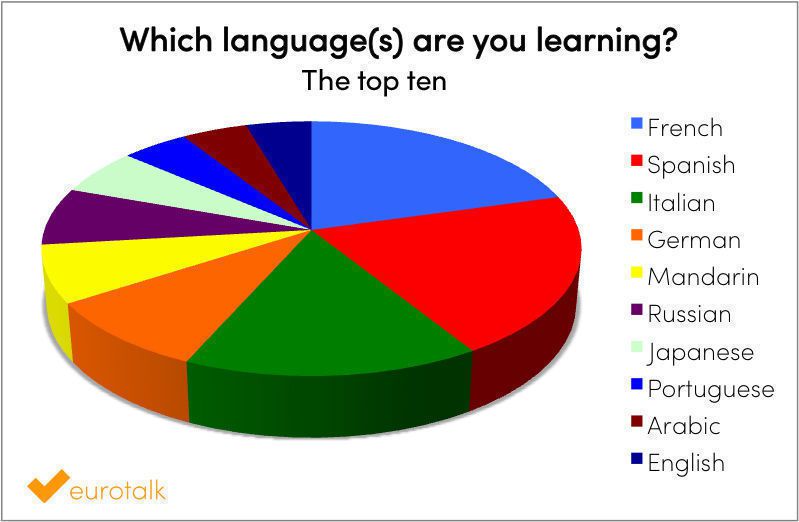The ups and downs of coming home
When you work abroad as an English as a foreign language teacher, coming home for the occasional visit and obligatory Christmas festivities means there are a number of things to look forward to. Personally custard, gravy and drinkable tap water are pretty high up on my list, but that’s just me. Friends, family, Wetherspoons breakfast… there are all sorts of things that beckon you and make home, home.
But there are also pitfalls, things you forget about and either take for granted or that have become so instilled, you don’t realise you are doing them.
Here’s a few of mine. Play snap?
Roads
No matter how many times I come back, I always get flummoxed by the roads. Left hand lane, right hand lane… I look both ways to prevent becoming a bug stain on a car bonnet every single time. And once I tried to get on the driver’s side of a National Express coach. The driver patted his knee and asked me if I’d like to drive. Possibly not…
Language
Yes, I should know better. But when I want to know the price of something I always find myself speaking in the language of the country from where I have just come – currently ¿Cuánto es? to check a price and perdona when I bump into someone. Which I do. A lot. Clumsy…
Customs
My first cafe visit on arriving back to England involved me trying to kiss a stranger. Not because I’m a floozy, but because I’ve just come from Spain, and the double kiss thing is part of my everyday greeting. Honest.
Manners
Someone sneezes, I say everything apart from bless you as a result of a number of different colds in a number of different cities. Thank you. Pardon. Would you mind…? Sorry. Sorry to inanimate objects like doors and trolleys. All the time. No wonder people outside of the UK have the mistaken impression that we are very, very polite.
 Price checking
Price checking
When you first go abroad you convert everything back into pounds, but when you come back here after an extended stay away, everything is automatically put back into euros (or whatever currency you know). Which makes every shopping trip an accounting adventure.
How much?!
Somewhat in the category of price checking I know, but hear me out. If you’ve gone from having a jarra of beer that is 1,50€ and you’re presented with a pint that is around £3-4, an outraged and indignant yell is likely to escape your lips without even a thought.
Lack of privacy
Families. They mean well. Of course they do. In theory. But it doesn’t matter your age or circumstances, when you return home to the ‘family nest’, you will be bombarded with questions (‘when are you settling down?’), misplaced praise (‘oh, you’re so brave to go off travelling’) or enforced schedules (‘we’ll have breakfast at 7, lunch at 1, and dinner at 7:30. And this is your itinerary for your stay.’) When you’ve been used to your own space and doing as you please when you feel like it, coming home can sometimes be a stifling experience.
Envy
Yes. People who hate their jobs and their lives will envy you. They will covet your lifestyle of devil-may-care and say things like ‘I don’t know how you do it’ whilst plucking one child from their knee while another is attached round their neck, telling you about their plans for decorating the living room and showing off their latest car. We don’t judge you for your lifestyle, settlers (well, we do, just… quietly), so why judge ours? And if you hate your job so much, leave. That’s what we did. Nothing magical.
Catching up on gossip
Even about people you don’t know. Especially about them. See, while we’ve been off living our lives, running between classrooms or students’ apartments, jumping from train to metro to bus and wondering if the GPS on our phones will ever kick in and be helpful, life has continued at home too. And somehow, even though we’ve not been told about events, we are automatically assumed to know about them. I personally blame Facebook for that.
Travel, demystified
For some people, planning a new work route is daunting, whether using a satnav, Google Maps, or an A-Z. And if you have to travel to another city for business, well. Brave new world. But when you travel a lot because of work, train stations, airports and maps no longer phase you, and neither does the prospect of getting lost. Living in another country makes you realise that getting lost is actually no bad thing, merely an unexpected adventure. After all. If Bilbo had taken the ‘correct’ path he was ‘supposed’ to, we’d never have even known of Hobbitty adventures, elven legends and secret kings. Life is in the adventure, is it not?
A moment of doubt
There is sometimes a moment. When you look around at all the people who were once a part of your daily lives, getting on and doing their thing, living a different existence, and you think… why can’t I do that? Why can’t I just stay in one place for an extended period and do the settling thing? And then the moment passes. Because settling isn’t for everyone. Mortgages, the 2.4 kids, and the family saloon in the driveway is really not for everyone. There is nothing wrong with either way of living. And after a week or two, or sometimes a day or two, the call of leaving comes screaming and you start looking longingly at planes overhead or twitching every time you pass a train station. Off you go, traveller. Time to depart again. Home (and gravy) will still be here when you get back.
Has anyone else had similar experiences when coming home from travelling? Or do you have any stories to add? We’d love to hear from you 🙂
Kelly
5 reasons NOT to learn a language
Yes, you did read that correctly. We’re always telling you why learning a language is one of the best things you can do – so today, we’re examining a few of the main reasons why people choose not to do it. How many of these do you recognise?
1. I’m not good at languages
We’ve all said this at some point. What it really means is ‘I didn’t do well at languages at school, so I must be bad at them.’ (Remember that time in Spanish class when you accidentally said you were pregnant when you meant embarrassed, and everyone laughed? Nightmare.)
But we all learn differently and at school, we were only taught one way. So maybe it’s just that you haven’t found the right way for you yet…
2. I can’t afford it
Learning a language doesn’t need to cost a fortune. You could read newspapers online in the language you’re learning. Or find a friend to chat to, either in person or via Skype. If you’re a creative type, make yourself some flashcards and use them to practise your vocabulary.
For more tips, visit Alex’s article on learning a language on a budget. And check out our special offer at the end of this email…
3. I don’t need to learn a language
This is one that’s often heard among English speakers: ‘But everyone speaks English!’ (Apparently 33% of Brits think speaking English with a foreign accent is the answer. It really isn’t.)
And while it might be true that a lot of people now speak English, that doesn’t mean we should stop making the effort. By knowing just a few words like hello and thank you, we show respect and probably end up having a better experience as a result.
4. I haven’t got time
We all lead busy lives, and it can be hard to find time to do everything we want to do. But learning a language doesn’t have to mean studying for hours on end. Break it up into small, manageable tasks and fit it around your daily life – on the bus to work, for instance, or waiting for a meeting to start. You may be surprised how much time you actually have.
For more advice, check out our blog post on making time to learn a language.
5. I’m too old to learn a language
You’re never too old. It may be true that children’s brains are better suited to picking up new languages, but it doesn’t necessarily follow that adults can’t do it. Just look at Benny Lewis, who hated languages at school and now speaks seven fluently. If he can do it, why not the rest of us?
So let’s stop making excuses and start learning a language now; in a year’s time we’ll be glad we did…
Win a $100 travel card with uTalk!
When we asked you in our recent survey why you were learning a language, almost half of you said it was for travel. Which makes perfect sense, of course – why learn a language unless you plan to use it?
As you know, our uTalk app is designed for people who are travelling, who want to learn a few simple words before leaving home, waiting to board your flight, or even when you arrive. Because if you know even a little of the local language, it can make all the difference to your trip – that’s something else you told us!
Because we know travel can be an expensive business, we’re offering one lucky winner a prepaid travel card worth US$100 (or equivalent in other currencies), and a free uTalk Premium in a language of your choice – check uTalk.com to see which ones are available. uTalk Premium includes 1,200 words and phrases across 35 categories in your chosen language – that should keep you busy for a while…
If you’d like to see what uTalk’s all about, check out our guided tour.
Interested?
Entering is simple – log in below and check out the ways you can take part. The more you do, the greater your chances of winning – it’s that simple! And by sharing the giveaway with friends, you can earn extra entries.
We’ve extended the competition to Friday 7th November, when we’ll verify the entries and then contact the winner, so there’s still plenty of time to enter.
Good luck!
Which language are you learning? The results!
We had a great response to our recent language learning survey; thank you to everyone who took the time to complete it. First things first: we’re delighted to announce that the winner of the iPad mini prize draw is Konstantia Sakellariou. Congratulations, Konstantia – your iPad is on its way!
We wanted also to share a few of our findings with you. Some of the results from the survey were as we expected, others were quite surprising. Here are just a few of the things you had to tell us. Thanks again for all your thoughtful responses, we’ll put them to good use.
Which language(s) are you learning (or would like to learn)?
The first question was pretty straightforward. A couple of people ticked every language on offer (over 100) – now that’s what we call ambition! – but most chose between 1 and 5. Here are the top ten most popular languages:  Other popular choices included Greek, Swedish, Dutch, Brazilian Portuguese, Norwegian, Irish, Polish and Icelandic. We also got some requests for languages we don’t yet offer, like Guernésiais and Twi – we’ll do our best to add those languages to our list, so watch this space!
Other popular choices included Greek, Swedish, Dutch, Brazilian Portuguese, Norwegian, Irish, Polish and Icelandic. We also got some requests for languages we don’t yet offer, like Guernésiais and Twi – we’ll do our best to add those languages to our list, so watch this space!
Why are you learning a language?
Next, we wanted to know why you’re learning a language. Nearly half of the respondents chose travel as a reason, and almost as many said they were learning a language just for fun. 36% of respondents said it was for family reasons or for a relationship, and 27% for work. The results were quite evenly split though, showing that there’s no one overwhelming reason – everyone has their own motivation.  Among the other reasons, we had a range of answers, including an interest in the culture of the language, personal challenge and wanting to follow literature, film and music in other languages. Many people are living in another country, which was their main motivation for learning the local language. And one person said that their heart asked for the knowledge, which we loved 🙂
Among the other reasons, we had a range of answers, including an interest in the culture of the language, personal challenge and wanting to follow literature, film and music in other languages. Many people are living in another country, which was their main motivation for learning the local language. And one person said that their heart asked for the knowledge, which we loved 🙂
What prevents you from learning a language?
We were also interested to know what stops people from learning a language, so we asked you to rate the following reasons out of 5. The most common barrier to learning is a lack of time, followed by not having found the right method, and then the cost involved.  Incidentally, if you’re facing any of these barriers, you may like to check out our recent posts, on finding time to learn a language and learning on a budget. And if you’re looking for resources, did you know you can try out the EuroTalk learning method for free? Either visit our website, or download our free app, uTalk for iOS, to give it a go. We believe learning a language should be fun, because our research shows we learn much better if we’re enjoying ourselves, and this in turn makes it a lot easier to overcome the obstacles that get in the way. See what you think! Other answers included not having an opportunity to use the language, a lack of motivation and difficulty finding resources for the particular language they wanted to learn (we may be able to help there – we’ve got 136 languages and counting…).
Incidentally, if you’re facing any of these barriers, you may like to check out our recent posts, on finding time to learn a language and learning on a budget. And if you’re looking for resources, did you know you can try out the EuroTalk learning method for free? Either visit our website, or download our free app, uTalk for iOS, to give it a go. We believe learning a language should be fun, because our research shows we learn much better if we’re enjoying ourselves, and this in turn makes it a lot easier to overcome the obstacles that get in the way. See what you think! Other answers included not having an opportunity to use the language, a lack of motivation and difficulty finding resources for the particular language they wanted to learn (we may be able to help there – we’ve got 136 languages and counting…).
How have you used your language when travelling?
Finally, we asked how knowing another language has been useful when you’re travelling. There was no clear winner here, which just goes to show knowing a language is always useful! But the top response was that it gives you the ability to talk to locals in their own language; many people added that they felt more welcome as a result and that it gave them independence so they could make the most of their trip. There were lots of practical reasons too, with getting around and eating out narrowly beating shopping in the poll. If you missed out on the survey this time, don’t worry – we’re planning another one soon, so keep an eye on the blog (you can subscribe by email above to get the latest updates), or follow us on Facebook or Twitter. And if you didn’t answer this survey but would still like to have your say on any of the questions, you’re very welcome to email us or add your thoughts in the comments below.
If you missed out on the survey this time, don’t worry – we’re planning another one soon, so keep an eye on the blog (you can subscribe by email above to get the latest updates), or follow us on Facebook or Twitter. And if you didn’t answer this survey but would still like to have your say on any of the questions, you’re very welcome to email us or add your thoughts in the comments below.
Liz
Data above based on 877 survey responses.
How to learn a language on a budget
Why do people give up on learning a language?
There are many answers to this question, of course. Recently, we’ve been running a survey (which you can still complete, if you have two minutes), about language learning, reasons for learning and things that might get in the way. According to the results so far, two of the top answers given to the above question are: lack of time, and lack of money.
 As I know only too well, language classes, private tutors and language CDs or books can quickly become very expensive. Having recently decided to try and upgrade my schoolgirl French, I had a look round at languge tuition and was pretty depressed to see that I would struggle to afford even a few weeks of classes. But never fear, there are plenty of ways to learn even if you can’t afford to go back to school or buy expensive subscriptions.
As I know only too well, language classes, private tutors and language CDs or books can quickly become very expensive. Having recently decided to try and upgrade my schoolgirl French, I had a look round at languge tuition and was pretty depressed to see that I would struggle to afford even a few weeks of classes. But never fear, there are plenty of ways to learn even if you can’t afford to go back to school or buy expensive subscriptions.
So here’s my short guide to how you can learn a language on a budget. Happy learning!
1. Online
There are a tonne of great resources to be found online without even paying a penny. Depending on your language, there are loads of websites for learning grammar, vocab and more. And you can often find really good sites for more advanced learners – I really love RFI for practising French (they have news reports in ‘easy’ French, with text transcriptions). For beginner to intermediate learners, busuu.com has a great programme for 12 languages, including grammar, reading, writing and vocab, and even allows you to chat with native speakers.
2. Media
This probably only applies to intermediate to advanced learners, but it’s my favourite way to practise the languages I already speak. Try watching movies in your language, with English subtitles, or subtitles in the language. Or Google the online version of a newspaper in that language (if I’m feeling very motivated, I read lemonde.fr, spiegel.de or elmundo.es). The radio is also a great tool for language absorption. You can listen to radio in almost any language at tunein.com (and they have a great app for on-the-go listening). Even just listening to some music in another language gets you used to the sound.
3. Flashcards
I used to be obsessed with these when I was at school and uni. In my opinion, this is a great way to cram vocabulary. Either make your own with paper (write the foreign word on one side and the English word or a picture on the other) and test yourself or get a friend to test you. Or, even better, there are some free programs to do just that, which even remember which words you’re weaker on and bring them up more often until you get them right. I used to use this on the computer, but you can get flashcards in app form now too.
4. Find other people to speak to
Ok, I’ve got it easy here because we have a very international office and I’m never short of someone to annoy with my dodgy Spanish… But even if you’re not surrounded by native speakers, you might be able to track down a language partner using a website like totalingua.com that matches you up with an exchange partner. If no one lives in your area, you can always arrange a Skype chat instead of meeting face to face.
5. Apps
There are some amazing free or cheap apps to download on iPhone or Android. I’m using a combination of DuoLingo and uTalk to learn basic Italian. DuoLingo is free and gives you a good grounding in grammar and basic vocab, whilst uTalk features native speakers for all (70 and counting) languages, and has real audio for all the phrases and vocabulary, so I can pick up on the accent and pronounciation as well. I normally play a couple of the games on the bus to work, although I save the recording quizzes for the privacy of my room!
6. Books
If you’re more of a paper and pencil type, then there are plenty of language-learning books on the market, and they’re mostly cheap to buy, or you can track some down second hand. I think there’s something to be said for having a paper dictionary if you’re a serious language learner (what if leo.de is down!?) – even if you just decorate your shelves with them to look intellectual (or is that just me?).
Have you got any more tips for people learning a language on a budget?
Alex
Next week: our guide to learning a language when you’re short of time. If you’ve got any particularly useful tips you’d like to see included, please let us know below!





